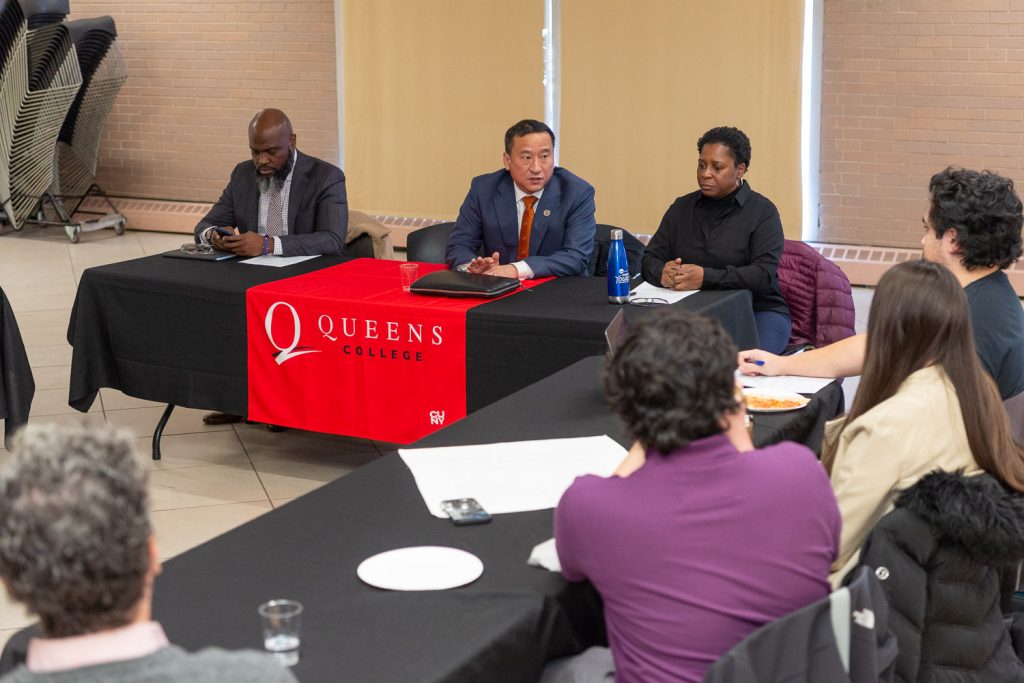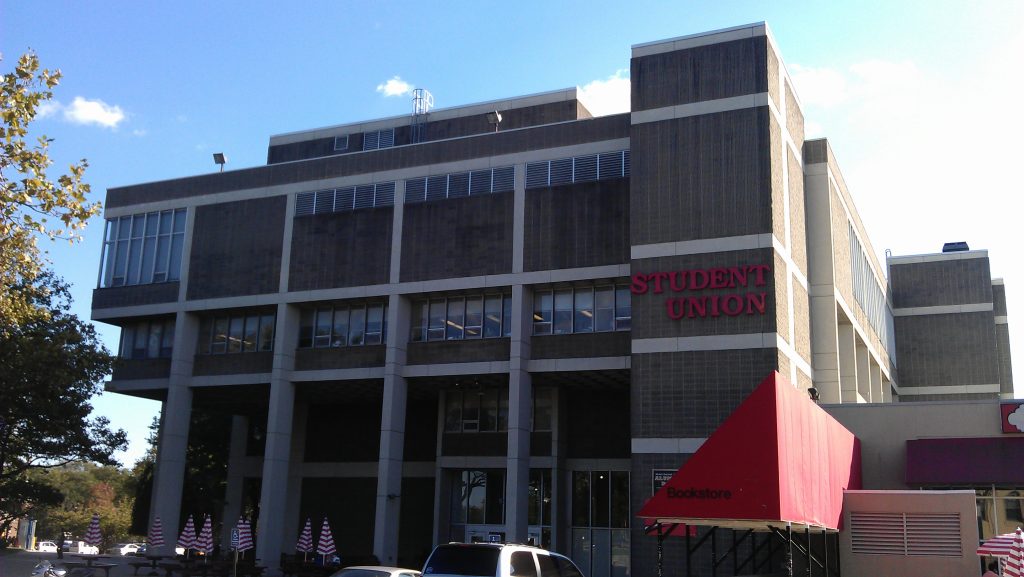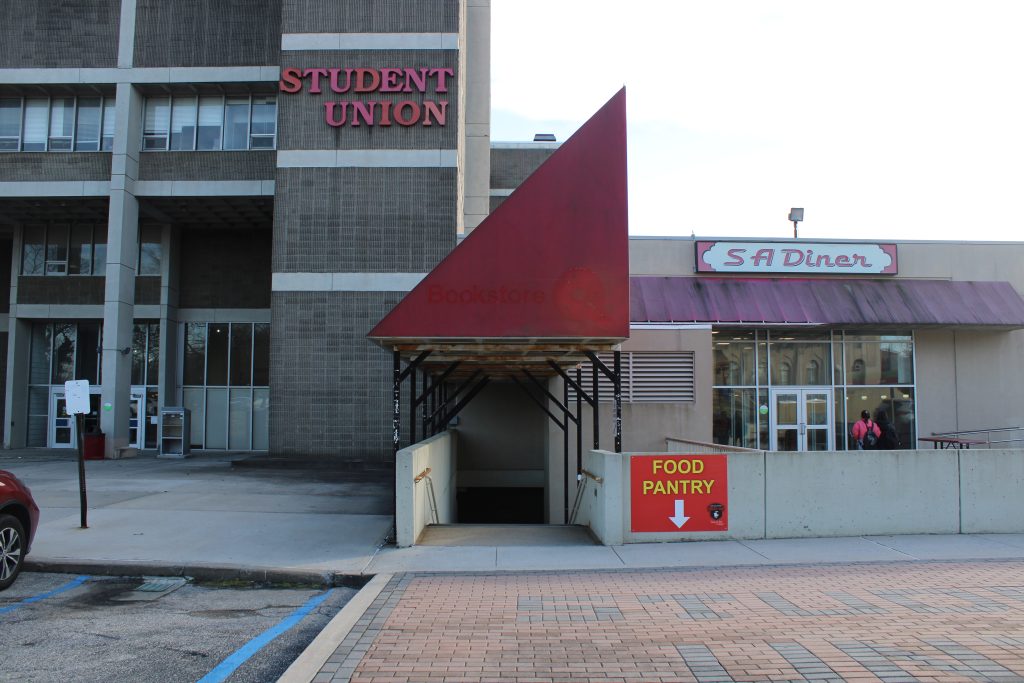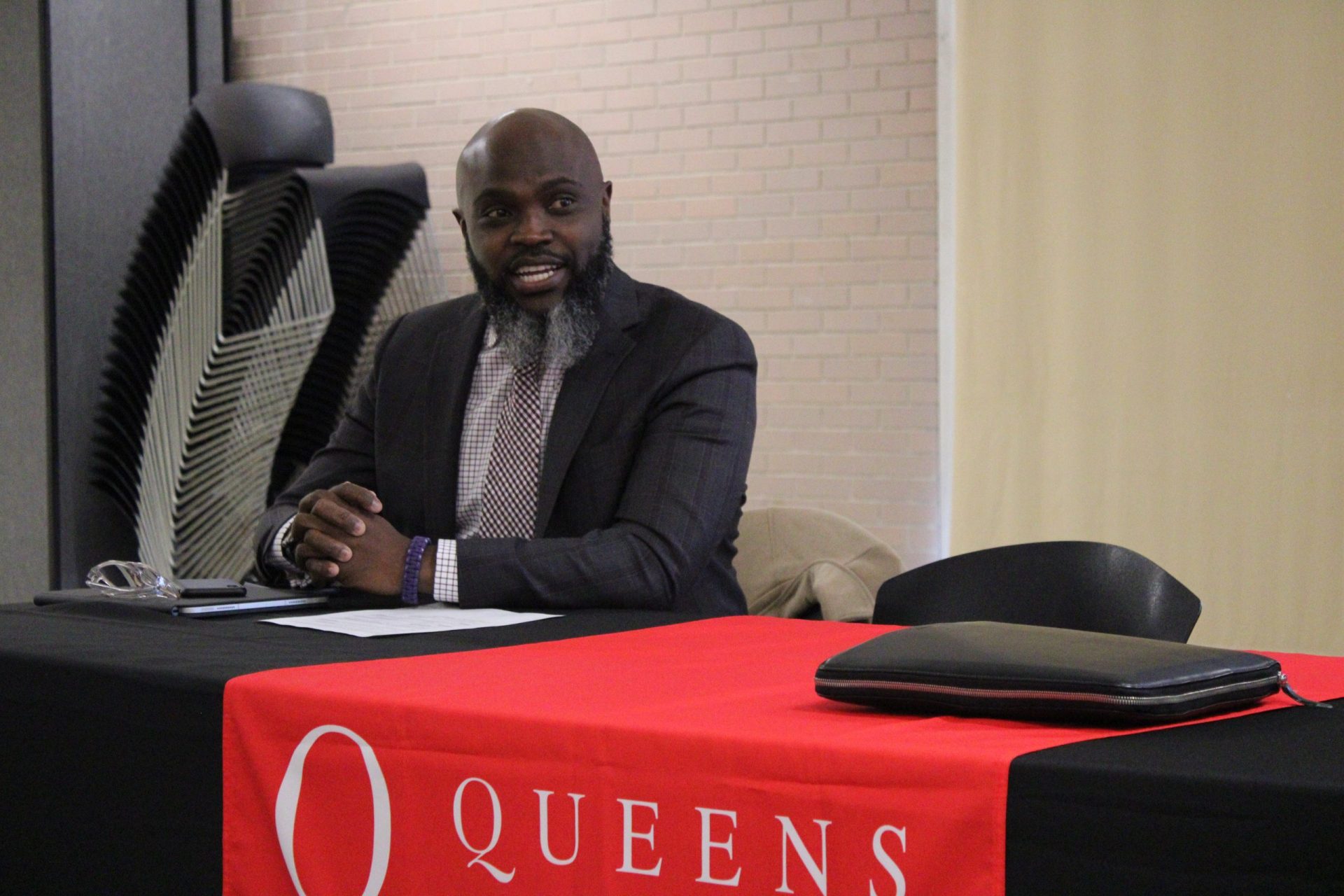EDITOR’S NOTE: Op-Eds detail the views of their writers and are not representative of the stance of the paper, even if the writer is on the paper’s staff. Publication of Op-Eds is not tantamount to an endorsement of their content. When interviewees have been granted anonymity, it is to protect their confidentiality when commenting on sensitive issues.
The college experience involves blissful highs and stressful lows. But, there’s one thing in that experience that remains a golden opportunity for all: participating in clubs through Student Life. I don’t think it’s a coincidence that term has such a strong connotation — student-run clubs are the life of a campus. Without them, students would become another faceless cog in the academia machine.
Queens College’s student life machine needs an oil change.
“Right before COVID-19 hit, we lost two staff members,” Dwayne Jones, Interim Dean of Students and Director of Student Life told the staff of The Knight Newsduring a conversation with President Frank Wu. “I was literally by myself, with Stevie [Robinson, College Association Business Manager] doing the budget, and I was by myself doing everything else. It was hard to do training for student leaders… certain things, you can’t manage all of these things. We have close to 100 clubs and organizations plus other duties that I have to do towards the office.”
Student Life is funded through your Student Activity Fee, more specifically, the College Association Fee. Full-time undergraduates pay $11 per semester for this fee, while part-time undergraduates pay $5.50. Full-time and part-time graduate students pay $4.75 a semester. According to a Queens College representative, the College Association and Student Government fees are received as one financial transaction. As of June 30, 2022 the college generated $678,751 from College Association and Student Government fees. The College Association Board is responsible for oversight of these fees and allocate budgets after addressing annual operating expenses.
This is plenty of funding for 100 clubs to use to create vibrant student life on campus — except that spending even the smallest sums of this money is a process hamstrung by bureaucracy and made worse by poor — and often downright disrespectful — communication.

As the guiding hand of Student Life, the Office of Student Development and Leadership (OSDL), is in charge of nearly every aspect of student life — handling money, creating official documents, and, in an ideal world, training and supporting student leaders. In my short period as Editor-in-Chief (President) of The Knight News, I’ve come to the conclusion that OSDL’s grip on clubs is too tight and too disorganized — a particularly unproductive combination. The problem with OSDL’s manning of the ship doesn’t come from just being understaffed. It’s also a matter of bad policies and poor communication. Speaking to other student leaders, I’ve learned I’m not alone in thinking so.
One student leader that has been involved in student life for four years spoke on the paperwork system OSDL requires clubs to navigate in order to receive anything, from paying guest speakers or getting a new pack of pens. “I think the entire paperwork system for club events from OSDL is a searing comment about their lack of respect for us,” the student leader said. “The rhetoric of OSDL [is] that they want to make things easier for us by doing everything, but in practice . . . they have no trust in adult student leaders to run their clubs like adults without them holding our hand for every little thing related to an event, from idea approval, to budgeting, to running around to convince places to give us tax forms, and to use CUNY website systems. It’s insulting.”
Before speaking to this person, I looked at the cumbersome and confusing paperwork system as anything more than an annoying and confusing bureaucratic step. Now I realize it signals a lack of respect and prevents student organizations from achieving their goals. An article posted in The Knight News in Dec. of 2020 describes a time when clubs had more freedom with their budgets, before the current paperwork system was put in place on Sep. 10th of that year. Prior to that date, clubs would have individual budgets that made it more accessible and easier for them to organize events and cover other financial costs necessary to run an attractive club.
In that article Abid Khan, a QC graduate and former president of the club Ascend, commented on the challenges his club faced after these policies took effect. “The Office of Student Development and Leadership definitely made our jobs harder to operate as a fully functional and attractive club from Queens College by adding extra steps to access any money in general,” Khan said. “Seeing as money has not been as accessible as before, we had to get more creative in figuring out how to make the club more attractive and doing activities together with students and club members for free.”
This principle holds true to this day. While the actual paperwork Khan referred to is lengthy and often confusing, this wouldn’t necessarily be an issue if OSDL didn’t make it harder than it already is through a lack of training and inconsistent communication. When I was elected as Editor-in-Chief midway through last semester, I expected to be trained, or at least get an explanation of how the system works but I was left in the dark to try and figure it out by myself.

“The paperwork instructions [on how to navigate the system] are online,” said one student leader I spoke to. “Nonetheless, it can be confusing to figure out how to file the paperwork if you have not done it before. It [feels] as if you were on your own. The interactions have been pretty much non-existent as you go weeks, if not months, without a reply.”
This conversation with a student was the first time that I learned that everything I needed to know was online. Why wasn’t I told about this from the beginning? It didfeel as if I were on my own. My confusion about how to figure out what to do after being elected for an officer position for the first time is not an isolated incident.
“I got no support from OSDL when I got my first officer position. It was sort of like, ‘cool, you’re a president now’ with no real other interaction,” the aforementioned student leader said. “On the other hand, the leadership training they did this semester to try and rectify that was kind of a train wreck, being on Zoom for three and a half hours, and not feeling like I gained anything useful out of it other than more confusion with paperwork.”
Offering training is a step in the right direction. However, staff at a teaching institution should realize a single, long (and confusing) Zoom session is cognitive overload, not a learning experience. Compounding the problem, I was not informed of this leadership training session, nor were many other student leaders. This lack of communication is a pattern. Apparently (and I use that word for a reason), OSDL sends out important emails clubs must know pertaining to policies and updates. I learned this only a week ago — and had to reach out to their office to be added to their email list.
Student clubs are required to submit a huge amount of paperwork to student life, documenting who our official student leaders are, the processes of our elections, the status of our club — along with budget requests, event forms, vendor forms, and tax documents for campus guests. There is no excuse for the fact that the OSDL doesn’t keep their email list up-to-date. The day after I was added to the email chain, I was told I had a week to recharter our club. If I didn’t, The Knight News would be denied access to the resources of student life and kicked out of our office in the Student Union basement. One week’s notice? Not appropriate or realistic.
“Honestly, having to work with student life [OSDL] is the absolute worst part of student life,” said one frustrated student leader I spoke to.“They’re condescending at times and everything they ask us to do is a formality that makes student life unnecessarily harder. Their communication is horrible, and sometimes they seem to magically lose documents we handed in on time. It’s discouraging, and I’ve had friends who stopped participating in student life because of it.”
The confusion, inefficiency, and poor communication from OSDL has serious consequences: it prevents student leaders from leading; it disempowers students; and it results in diminished community on campus. These problems run deeper than understaffing. The issue is systemic. In short, the office intended to serve and support students undermines us.

So , what’s the solution? An overwhelming majority of the student leaders I spoke to believe Mr. Jones should step down. The extremity of this sentiment reflects the severe frustration of student leaders, who routinely use adjectives such as ‘rude,’ ‘dismissive,’ and ‘cold’ to describe him. The most shocking thing I heard about Mr. Jones came from a student who was trying to recharter a club. They claimed Mr. Jones yelled at them after they provided evidence that they submitted all the necessary paperwork on time after Mr. Jones allegedly told them they hadn’t. According to my source, two members of OSDL present in the office apologized to the student, saying they would nudge Mr. Jones to check back in with the student, but that never happened. You don’t want to hear any of that about an administrator at a teaching institution, especially the person in charge of student life on campus. It should be noted that students have allegedly had similarly contentious interactions with other members of the OSDL staff.
While a change in leadership may result in change, that may not necessarily be the answer in this scenario. As other student leaders suggested to me, allocating set budgets for clubs (as was former practice) with immediate access to would mitigate the difficult paperwork process, resulting in more active and enthusiastic student life on campus. This would also teach student leaders financial responsibility as they will see first-hand how much money they have and what they’re spending it on.
Returning to the former budget system would help. However, I cannot ignore the cries of frustration against Mr. Jones that I heard, especially when I’m being told the answer is to ‘cut the head of the snake off.’ Change needs to happen from an administrative standpoint. If not, the student life machine will continue to jolt and creak at the expense of the students.
The Office of Student Development and Leadership needs to become a student-friendly culture: supportive, not punitive; encouraging, not policing. The role of the staff must be to help students achieve their goals, remove (rather than create) obstacles, and enable us to create the vibrant sense of community our campus sorely needs — especially as it transitions back to on-campus experience. In other words, to put the ‘life’ back into Student Life.
To begin a process of change, I, as Editor-in-Chief of The Knight News, call upon OSDL to hold an open forum with student leaders and members of the campus community, to discuss the problem and work toward genuine solutions.
